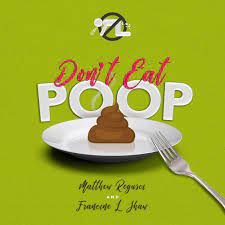Food Safety Is About Trust and Relationships

“It’s not what we know that worries me. It’s what we don’t know,” said Jorge Hernandez, VP of Quality Assurance at The Wendy’s Company. He spoke with Matt Regusci and Francine Shaw, co-hosts of the “Don’t Eat Poop” podcast during the 2023 Food Safety Consortium to discuss his career, and how to make a difference as a food safety professional.
Hernandez began his career as a local and then state food inspector in Illinois before moving to U.S. Foods and then Wendy’s. Looking back on his early career, he noted that the most important thing he learned as an inspector is that people want to do the right thing, and if you take the time to explain the problem and offer solutions, they are willing to learn and will become compliant with the rules.
English is not Hernandez’s first language, which has helped him with his communication. “As I was learning English, I learned that it’s not what you say, but how they receive it,” he said. “So I’m very sensitive to ‘Are they understanding what I’m saying and my words?’ If not, I stop and listen to them and their feedback to make sure my message got through. If you just walk away, you don’t know if they got it or not.”
The need to develop relationships that extend beyond the transactional was a key message, particularly when it comes to suppliers. “To me a supplier is a partnership. How can I make them better and how can they make us better?” said Hernandez. “If it’s all about 5 cents here or 10 cents there, that drives a suppler to go around you or start doing things [you don’t want]. I’m committed to working with them to make them better, faster, more efficient, whatever it needs to be.”
Regusci and Shaw asked Hernandez to share the biggest changes he’s seen in the industry since he started his career. Technological advances were No. 1. “Technology has taken us a lot farther and moved faster than I thought. Now we’re looking at the DNA of bacteria and we can identify it and follow an outbreak to levels we never thought possible,” said Hernandez. “But also, there are practices we thought were safe and now we’re discovering, not necessarily. Look at listeria. While technology has helped us see more, there are a lot of risks that our systems are not able to handle, and we need to address that.”
In terms of future risks to the food supply, the evolutionary nature of bacteria and changes in weather are what keep him up at night. “Bacteria have been evolving and they will evolve to the point that our sanitizers and processes will not be effective. Also, the weather is changing; things are warmer. And in the U.S., we are seeing more outbreaks from bacteria that were more common in warmer climates,” he said. “So we need to be smart enough to know our technology and our food safety systems, but also flexible enough to prepare for what is coming next.”
When asked what he wished—as a former inspector—that food inspectors and regulators understood about the industry, he shared that, “People who are from outside the industry don’t acknowledge as much as they could or should that everyone is trying to do the right thing. They just need to understand the why and how.”
At the close of each episode, Shaw asks, “What does trust mean to you?”
“Trust means everything,”, said Hernandez. “In order for me to develop a relationship with a supplier, I need to trust them and they need to trust me. When I hire a new employee, I need to trust that they are going to do their job and they need to trust that I have their best interests at heart and that we as a company are going to take care of them and give them a career. Trust is essential to everything we do.”
Listen to the full episode here: